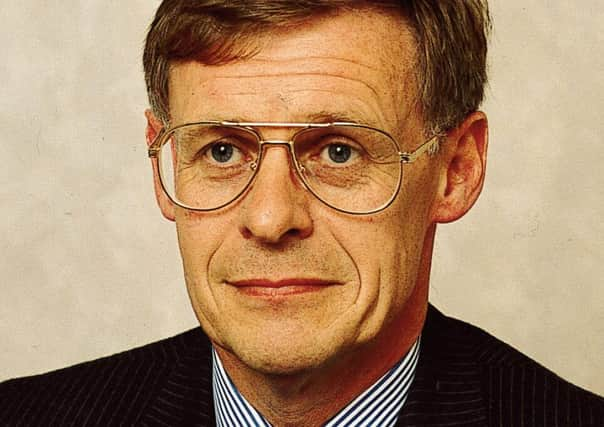Obituary: Dr Brian Keighley MBE, GP and administrator


Dr Brian Keighley was an eminent and much respected physician who played a prominent role, for 35 years, in improving the service offered by the British Medical Association in Scotland. He served with distinction as chairman of the BMA’s Scottish Council from 2009 to 2014 and was on the council of the Royal College of General Practitioners. These achievements were in addition to Dr Keighley’s duties as a GP in Balfron, Stirlingshire which he carried out with unerring grace and goodwill.
Colleagues and patients have described Dr Keighley as “a caring and deeply committed doctor”. The current chairman of BMA Scotland, Dr Peter Bennie, paid tribute to his former colleague: “Brian was a passionate advocate for health professionals, improving the health of the population and the quality of healthcare services across Scotland and the UK. His sage advice, counsel and extensive knowledge of health service issues will be sorely missed.”
Advertisement
Hide AdAdvertisement
Hide AdBrian Douglas Keighley attended Glasgow Academy and then read Medicine at Glasgow University. He qualified in 1972 and served as a House Officer at Stobhill Hospital in Glasgow. Further appointments in hospitals including Falkirk Royal Infirmary before, in 1974, he did his training as a GP and joined the practice in Balfron that year. It was an area where he lived for the rest of his life.
Over the years Dr Keighley involved himself in many aspects of the local community. As a physician he provided a traditional and caring service. He was committed to the well-being of all his patients and he cared for the elderly and infirm with a special personal concern.
He was also present at many local events, served as medical officer for the Drymen Show and was much involved with the Forth Valley Health Board as well as serving as a JP. His responsibilities as a GP were extended by his work to ensure that the profession in Scotland provided a first-class service. Dr Keighley diligently represented the profession at many official committees and developed good relations with the Health Ministry in London and, after devolution, with the health officials at Holyrood.
Dr Keighley played a vital role in gaining a higher profile for many important health issues. He was articulate at conferences and had the knack of presenting a case in a cogent but courteous manner.
He was, for example, a prominent voice in advocating greater control of alcohol consumption and supported the Scottish Government’s drive for the minimum pricing of alcohol. He campaigned to modernise the internal workings of the GMC and improved the pension arrangements for the profession.
Nicola Sturgeon placed on record her admiration for Dr Keighley when she said earlier this week: “I worked with Brian when I was health secretary and he was a strong champion of GPs and the NHS.”
But Dr Keighley realised the profession was under pressure. While he considered the Scottish system was in a better state than that south of the Border – although he had concerns about staff shortages at the A&E department at Aberdeen Royal Infirmary – he did say on his retirement in 2013: “What I have seen over the past five years is the continuing crisis management of the longest car crash in memory. It is time for our politicians to face up to some very hard questions.”
Dr Keighley was never afraid to speak out on behalf of healthcare. Indeed, although a keen follower of politics Dr Keighley advocated that healthcare should be taken out of the political arena. He often criticised the “short-term political goals” that obscured the complex decisions that have to be made in the NHS.
Advertisement
Hide AdAdvertisement
Hide AdDr Keighley served as a nationally elected member of the Royal College of GPs (representing the West of Scotland) from 2000 to 2008 and fulfilled the post with style and energy. Throughout the college, he was held in high regard and known affectionately as The Laird.
Professor Terence Stephenson, chair of the General Medical Council, told The Scotsman: “Brian was passionate about the medical profession and the NHS, both of which he served with such dedication and commitment.
“After he left the GMC council, he remained closely involved with our work and a great advocate to modernise medical regulation, particularly revalidation, and as one of our most ardent critics.
“He challenged us to be a better organisation and his influence helped to make us what we are today.”
Dr Keighley, who was awarded the MBE this year, was a keen angler and kept active through his love of squash and jogging. His first marriage to Ruth Maguire was dissolved and he is survived by his second wife Lesley and two sons of his first marriage.